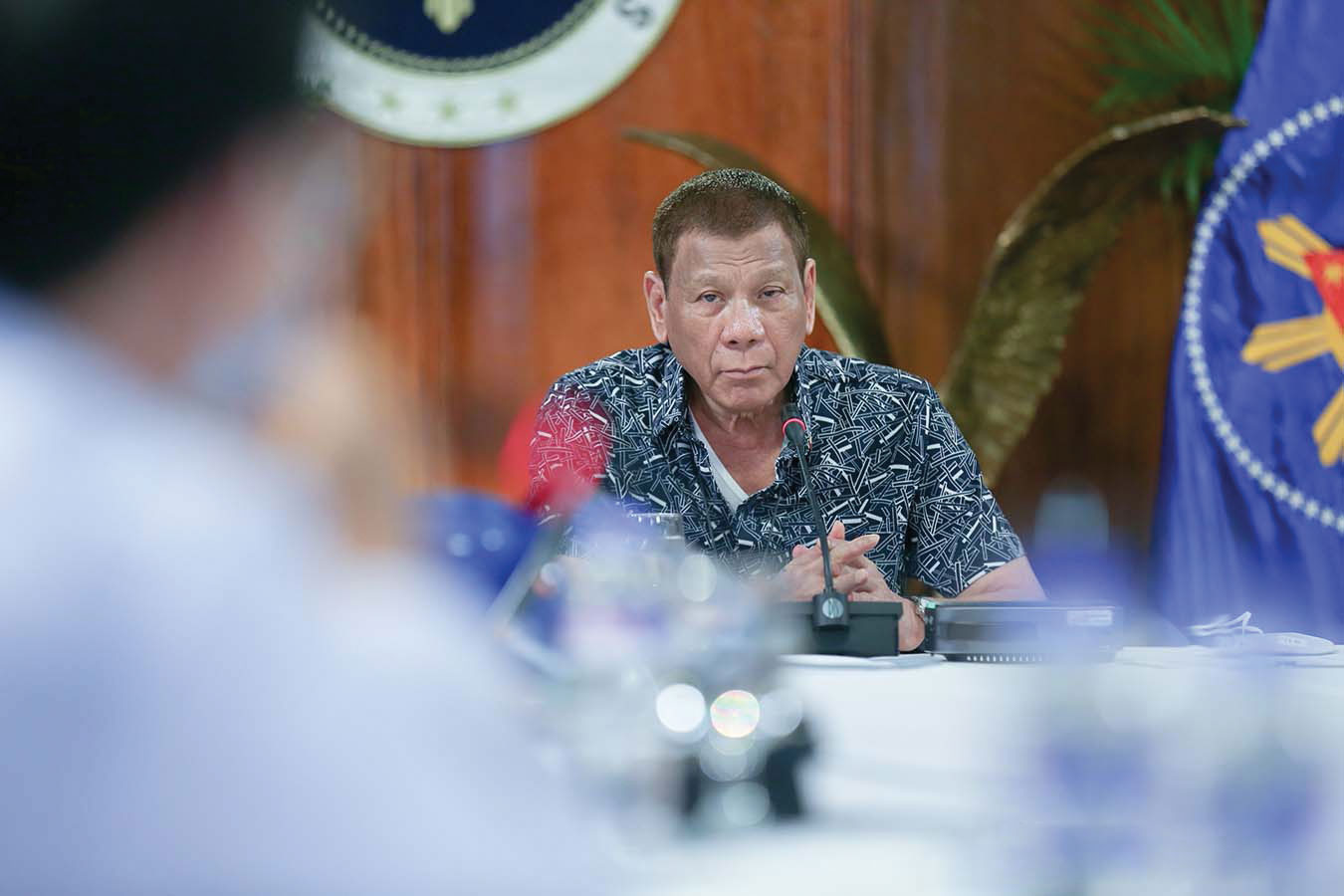
Malacañang on Thursday, July 2, announced that the controversial anti-terrorism bill is now with the Office of Executive Secretary Salvador Medialdea for final review.
“Wala na po sa lamesa ng Deputy Executive Secretary for Legal Affairs, nailipat na po ‘yan sa tanggapan ni Executive Secretary for final review (It is no longer on the desk of the Deputy Executive Secretary for Legal Affairs, it has been transferred to the office of the Executive Secretary for final review),” said Presidential Spokesperson Harry Roque in a virtual briefing.
“Meron na pong memorandum na (there is now a memorandum) recommending a course of action to the president, subject to final approval lang po siguro ‘yan ni (of the) executive secretary at dadalhin na po sa lamesa ni presidente (and it will be brought to the president’s desk),” he added.
Medialdea will then submit the Palace’s position to President Rodrigo Duterte, who has until July 9 to sign or veto the measure before it lapses into law.
Meanwhile, United Nations High Commissioner for Human Rights Michelle Bachelet on Tuesday, June 30, appealed to Duterte to”refrain from signing” the controversial anti-terrorism bill as it “heightens concerns about the blurring of important distinctions between criticism, criminality and terrorism.”
“The law could have a further chilling effect on human rights and humanitarian work, hindering support to vulnerable and marginalized communities,” she said during the 44th regular session of the UN Human Rights Council.
“So I would urge the president to refrain from signing the law, and to initiate a broad-based consultation process to draft legislation that can effectively prevent and counter violent extremism — but which contains some safeguards to prevent its misuse against people engaged in peaceful criticism and advocacy,” she added.
The anti-terrorism bill, which seeks to strengthen the Human Security Act of 2007, grants any law enforcer to arrest and detain without warrant “a person suspected of committing any of the acts” punishable under the measure for 14 calendar days, extendable by 10 days.
The suspected “terrorist” can also be placed under surveillance for 60 days, extendable by up to 30 more days, by the police or the military.
Acts punishable under the bill include:
• Engaging in acts intended to cause death or serious bodily injury to any person, or endangers a person’s life;
• Engaging in acts intended to cause extensive damage or destruction to a government or public facility, public place, or private property;
• Engaging in acts intended to cause extensive interference with, damage, or destruction to critical infrastructure;
• Developing, manufacturing, possessing, acquiring, transporting, supplying or using weapons; and
• Releasing of dangerous substances, or causing fire, floods or explosions.
• Any person who will propose, incite, conspire, participate in the planning, training, preparation, and facilitation of a terrorist act, as well as those who will provide material support to terrorists and recruit members in a terrorist organization, will also be penalized by life imprisonment without the benefit of parole.
Meanwhile, anyone who will threaten to commit terrorism, and those who will propose any terroristic acts or incite others to commit terrorism will suffer imprisonment of 12 years.
This goes the same for anyone who will voluntarily and knowingly join any organization, association or group of persons knowing that such is a terrorist organization.






